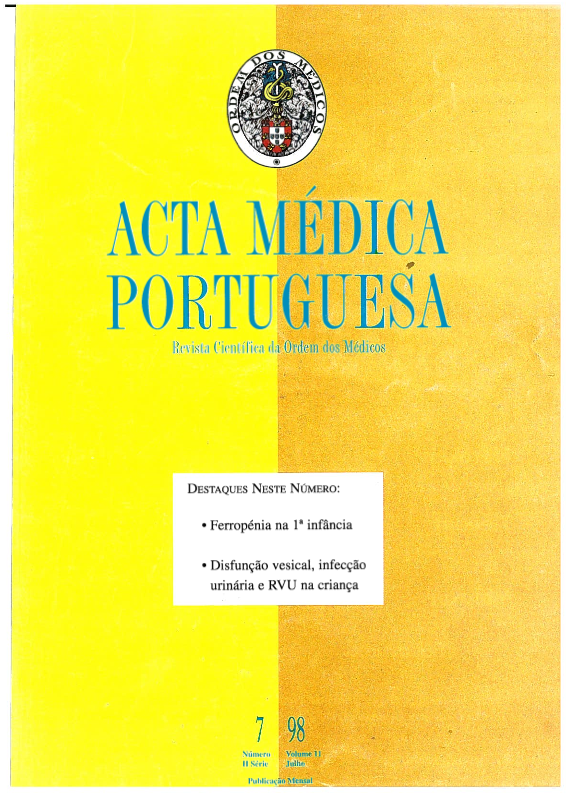Distúrbios lipídicos em crianças com diabetes mellitus insulino-dependentes.
DOI:
https://doi.org/10.20344/amp.2298Resumo
Lipid and lipoprotein disorders are frequently detected in insulin dependent diabetics, which predisposes the high cardiovascular risk present in these patients. Studies performed with insulin dependent children showed early changes in lipid metabolism, usually correlated and aggravated by poor glycemic control. However, there are abnormalities present even in diabetic children with good glycemic control. The usual measures used to improve diabetic control are not sufficient to correct all the lipid disorders in Diabetes Mellitus. Hyperglycemia is the major factor, inducing metabolic lipid changes by increasing hepatic synthesis of triglycerides and promoting lipoprotein and apolipoprotein glycosylation and oxidation. Other changes, associated with the decrease of lipoprotein lipase activity are directly related to insulin deficiency. The lipid profile in children with poor diabetic control is similar to that already described for adult patients. The main abnormalities found are: increased levels of triglycerides, VLDL-Tg, LDL-Tg, VLDL-Cholesterol, Apo B and Apo CIII, with decreased values of HDL-Cholesterol and Apo AI. As there is a strong correlation between control and the degree of lipid changes, even with normal levels of cholesterol and triglycerides, measurements of Apo AI, Apo B100 and Apo CIII seem to be good and reliable indicators of glycemic control in diabetic children, and a factor with high predictive value for the evaluation of cardiovascular risk in adult patients.Downloads
Downloads
Como Citar
Edição
Secção
Licença
Todos os artigos publicados na AMP são de acesso aberto e cumprem os requisitos das agências de financiamento ou instituições académicas. Relativamente à utilização por terceiros a AMP rege-se pelos termos da licença Creative Commons ‘Atribuição – Uso Não-Comercial – (CC-BY-NC)’.
É da responsabilidade do autor obter permissão para reproduzir figuras, tabelas, etc., de outras publicações. Após a aceitação de um artigo, os autores serão convidados a preencher uma “Declaração de Responsabilidade Autoral e Partilha de Direitos de Autor “(http://www.actamedicaportuguesa.com/info/AMP-NormasPublicacao.pdf) e a “Declaração de Potenciais Conflitos de Interesse” (http://www.icmje.org/conflicts-of-interest) do ICMJE. Será enviado um e-mail ao autor correspondente, confirmando a receção do manuscrito.
Após a publicação, os autores ficam autorizados a disponibilizar os seus artigos em repositórios das suas instituições de origem, desde que mencionem sempre onde foram publicados e de acordo com a licença Creative Commons









